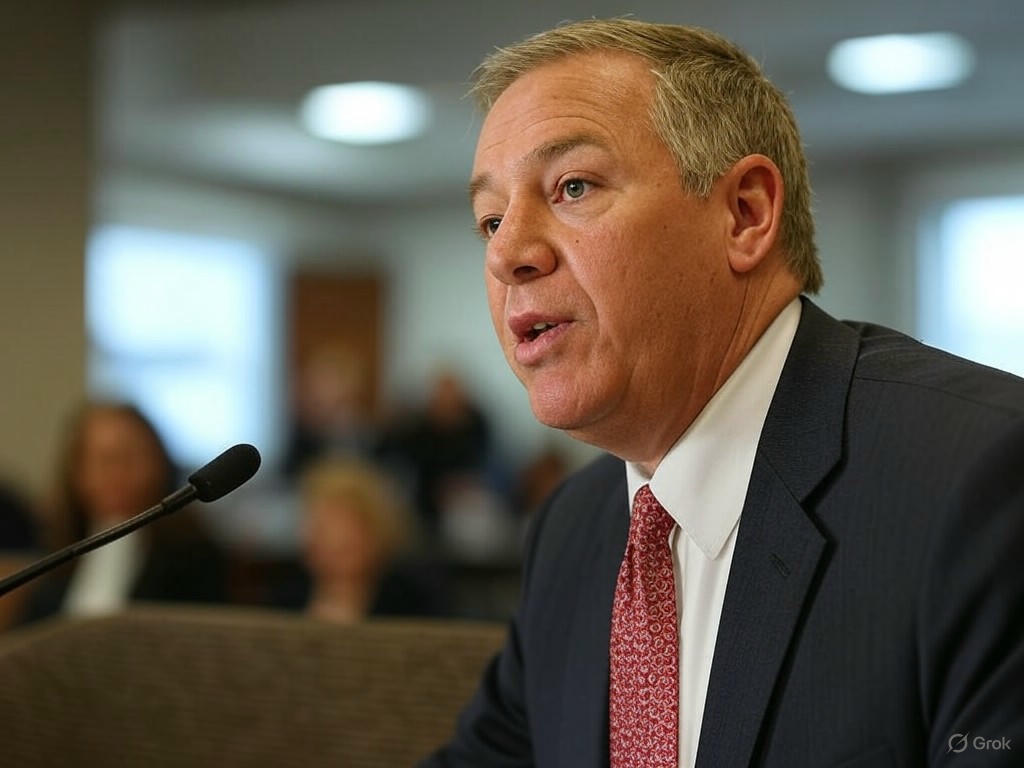DOGE Leader Challenges Elon Musk’s Bold Claims on Budget Cuts
In a surprising turn of events, a prominent congressional figure aligned with the Department of Government Efficiency (DOGE) initiative has publicly criticized tech billionaire Elon Musk over his recent statements on federal spending reductions. The clash, emerging amidst a broader feud involving President Trump, has sparked heated debates about fiscal responsibility and the role of influential business leaders in shaping government policy.
The DOGE caucus, a group of lawmakers pushing for streamlined government operations and significant budget trims, has often found an ally in Musk, whose vocal support for efficiency and innovation aligns with their mission. However, Musk’s latest assertion—claiming that trillions could be slashed from federal spending without impacting essential services—has drawn sharp rebuke from one of the caucus’s key voices. The lawmaker, known for championing data-driven reforms, accused Musk of overstating the feasibility of such drastic cuts, calling his remarks a ‘gross overstatement’ that risks undermining serious policy discussions. This critique comes at a time when tensions between Musk and Trump are already simmering, fueled by disagreements over political priorities and personal influence within conservative circles.
The criticism highlights a growing divide between Musk’s ambitious, often headline-grabbing ideas and the pragmatic realities of governance. While Musk has positioned himself as a disruptor, advocating for radical changes through social media and public appearances, lawmakers on Capitol Hill face the daunting task of balancing budgets without alienating constituents or destabilizing critical programs. The DOGE leader emphasized that while the caucus appreciates Musk’s enthusiasm for reform, his lack of specificity and apparent disregard for the complexities of federal spending could mislead the public. For instance, slashing trillions, as Musk suggested, might sound appealing in theory, but it overlooks the intricate web of entitlements, defense commitments, and infrastructure needs that form the backbone of the national budget.
This public disagreement also raises questions about Musk’s influence in political spheres. As the world’s wealthiest individual, his opinions carry significant weight, often shaping narratives around innovation and efficiency. Yet, this latest pushback from a DOGE-aligned lawmaker suggests that even his most ardent supporters are wary of unchecked rhetoric. The incident underscores the delicate balance between visionary ideas and actionable policy, especially in an era where social media amplifies every statement into a potential controversy.
As the feud between Musk and Trump continues to unfold, this clash with a DOGE leader adds another layer of complexity to the billionaire’s political entanglements. It remains to be seen whether Musk will double down on his claims or offer a more nuanced perspective in response to the criticism. For now, the episode serves as a reminder that even the most powerful voices must navigate the messy realities of governance. With the DOGE caucus pressing forward on its efficiency agenda, the coming months will likely test the limits of Musk’s influence—and the patience of those working to turn bold ideas into tangible results.


